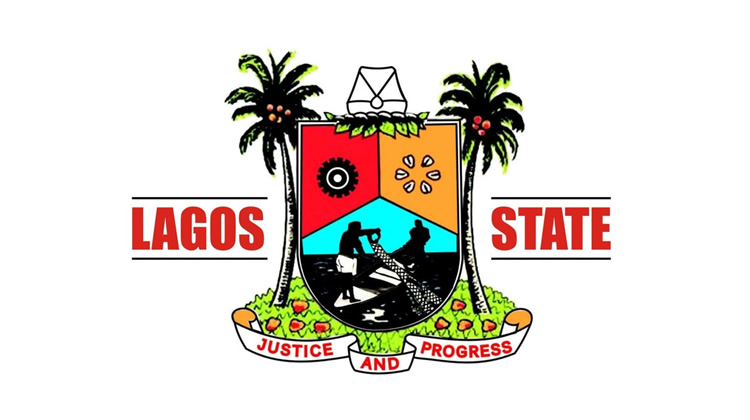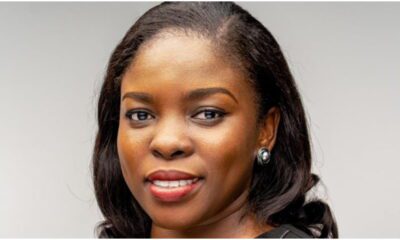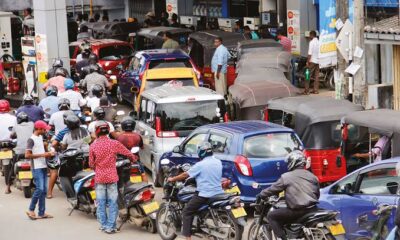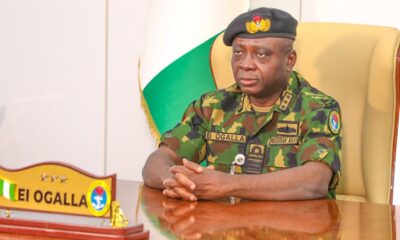Inside Lagos
Lagos hosts first VLR, as performance indicators call for critical actions to achieve SDGs 2030 targets
By Moses Adeniyi
The first Voluntary Local Review (VLR) on the Sustainable Development Goals (SDGs) in Nigeria has been carried out in Lagos, with a workshop organised by the State Government to assess the performance index of the targets towards actualising the 17 SDGs by 2030 in the State.
Stakeholders at the VLR workshop in Lagos gathered to analyse critical actions that actors must exert efforts on for intervention to localised actualisation of the SDGs in Lagos, weighing the progress push in the State towards the 17 goals.
According to a VLR report presented at the workshop, which optimised multi stage sampling technique with distribution of enumerators across 20 Local Government Areas (LGAs), and 37 Local Council Development Areas (LCDAs), with 21,000 samples drawn to make the survey representative of the Lagos demography, the State though doing fairly well comparatively to other sub nationals in the Country, must collaborate with other actors to facilitate efforts towards the 17 SDGs if it would achieve the targets set by the United Nations (UN) by 2030.
The report which analysed 91 indicators for SDGs in Lagos, found that in four of the 17 SDGs, Lagos was doing well, while actions were needed to boost progress to actualising the goals by 2030.
The report found that on SDG 1, zero – poverty, poverty level in Lagos has risen, as 10percent of the State’s population was living below the poverty line.
The COVID-19 pandemic, recent global shocks, and migration of unskilled workers into the State, were key among other factors found to have contributed to the problem.
Also, the report noted the State needed to address waste management as it was discovered it was far from the standard towards actualising the zero waste target.
On SDG 7, the report also noted that though the State is about 82 percent on access to clean energy, yet it was still below the 100percent UN target.
On SDG 3, the report established that the State on Healthcare was relatively close to the target, noting that should the State keep on the track, it would hit the target by 2030.
It noted recent records show drastic reduction in maternal and child mortality decreasing by about 20 percent.
The report, however, noted the State is at risk of skilled medical personnel loss due to increasing migration of health professionals, submitting that appropriate actions must be taken.
On Education, the report established the State was in line, but must muster actions to hit the target by 2030.
The report noted that on revenue generation the State must further muster actions to meet the target of 5percent of the GDP, up from the subsisting records of about 3 percent.
At the workshop stakeholders, including development partners, private sector leaders, agencies of government, civil society representatives, academia, non-governmental organisations, community of volunteers analysed the progress of the State in actualising the SDGs in 2030, agreeing that though the State has an advantage in comparative consideration with other subnationals in Nigeria, yet the there were much to do to further improve on progress.
At the Voluntary Local Review (VLR) validation workshop, Dr.OreOluwa Finnih, the Special Adviser to the Lagos State Governor, Mr. Babajide Sanwo-Olu on SDGs said it was “important to measure where we are, so that we know where we are going.”
According to her, the workshop marks a pivotal moment “in our collective journey toward achieving the Global Goals as well as co-creating an inclusive, just, and prosperous future for all residents of Lagos State.”
“The Voluntary Local Review as a sub-national endeavour has demonstrated local capacity and commitments of cities and regions to foster SDGs in rural communities. Thus, the state recognizes that the VLRs is not an end in itself but a process by which we assess our progress and shortcomings in implementing the SDGs through an inclusive process that involves all relevant actors,” she added.
She mentioned that the impact of the Voluntary Local Review Validation Programme is already being felt in cities and local governments around the world and has become a catalyst for change, inspiring innovative solutions and driving transformative action.
“While subnational reviews of 2030 Agenda have intrinsic value as part of the implementation process, they can also contribute to the national level Voluntary National Reviews (VNRs) and reinforce vertical coherence. It emphasizes the importance of embedding the process and its findings into existing implementation efforts and planning for effective follow-up,” she said.
She noted that since the adoption of the SDGs in 2015, Lagos has “ambitiously moved to pursue this transformative global agenda with every vigor it deserves.”
She added that the State has actively promoted localisation of the SDGs by being the first State in Nigeria to establish the Office of SDGs as a Cabinet Office and incorporating the framework into the State’s development plans.
“The establishment of civic engagement initiatives and platforms such as the Lagos State Volunteer Corp and the Lagos SDGs Youth Alliance has enabled citizens to become an active participant in governance.
“We have equally institutionalised SDGs in learning institutions and built cross-sectoral partnerships for all the Goals,” she added.
According to her, the validation exercise “will empower us with objective insights and constructive feedback which will enable us to fully understand our wins, close the gaps and provide potential opportunities to accelerate the attainment of these Goals.
“This remarkable initiative has empowered the state to lead the way in its drive towards achieving the global agenda. It has provided us with a platform to review our progress, share experiences, and learn from both the local communities and development partners,” she added.
She said further that “Significantly, this exercise will project how Lagos is addressing the three dimensions of sustainable development -economic, social and environmental in an integrated manner with examples of actions and policies aimed at unveiling interlinkages, enhancing synergies and avoiding trade-offs in the implementation of the SDGs.”
Acknowledging that more work remains to be done, she said pressing sustainability challenges from poverty, inequality, unemployment, environmental degradation and more, must still be overcome through concerted efforts.
“It is only through these collaborative efforts that we can surmount obstacles and unlock the full potential of Lagos as a Center of Excellence,” she said.
She mentioned that the outcomes of the workshop will strengthen the report to guide the path towards “the realization of the Lagos of our dream, without leaving anyone behind.”
Stakeholders at the event submitted that key plans were essential to accelerate actions to achieve localised SDGs targets in Lagos
Five key areas of concern demanding strategic actions include stimulation of economic growth and creation of jobs to eradicate poverty, significant improvement on living conditions across all dimensions in Lagos, enhancement of human capacity development, to achieve SDGs targets in the State.
The stakeholders noted demand executing same in sustainable manner – climate sensitive and inclusive.
They called for legislative backing for stakeholders to make input to localise stakeholders contributions.
Speaking, the Executive Chairman of the Onigbongbo LCDA, Oladotun Olakanle, said the State Government has embarked on projects which bear key relevance to the actualisation of the SDGs, mentioning the localisation of the implementation efforts have seen Local Government Areas have their residents benefiting from critical interventions, particularly in human capacity development.
“It’s been beneficial because the totality of their involvement has actually added value to the essence of local governments and the grassroots. My advice to all and sundry is for us to continue to tap and take advantage of every opportunity at our disposal,” he said.
He added that the VLR is “to give us data driven appraisal as to where we require more work,” he said, mentioning the lagging areas would be prioritised, as the government would strengthen partnership to address the lapses.
He said the VLR would give the State Government “as well as those of us at the local level, the opportunity to review the various data and statistics available, so that we can be able to project future development to impact our people generally.”
“If you decide to eradicate poverty, make life meaningful to the people, there is the need to constantly review what you are working on, so that you can always project for future advancement,” he said.
The Director of the Lagos State University Centre for the Actualization of the United Nations Sustainable Development Goals (LASU-SDG), Prof. Tayo Ajayi lauded the VLR initiative, stating academic institutions as critical stakeholders have major roles to play in achieving the 17 goals in all Countries of the World.
He mentioned the importance underscores why the Lagos State University has conceptualised a working contribution with the establishment of the SDGs club in the institution, a development, he said, has attracted the UN’s attention.
Inside Lagos
Lagos sets up committee to empower women, girls with economic opportunities


The Lagos State government has taken a significant step towards promoting gender equality and empowering women and girls in the state.
A nine-member committee has been established to domesticate the National Women’s Economic Empowerment Policy, which aims to improve access to economic opportunities, financial inclusion, and gender mainstreaming for women and girls.
The committee’s establishment was announced by the Commissioner of Women Affairs and Poverty Alleviation, Mrs. Cecelia Dada, during a follow-up visit by a delegation from the National Institute for Policy and Strategic Studies and the Development Research and Projects Centre.
This was contained in a statement signed by the DRPC on Wednesday.
The national WEE policy was launched in 2023 to provide a policy guide for addressing the challenges hindering women’s development and growth in Nigeria.
The establishment of the committee in Lagos State is a strategic intervention to ensure that women and girls in the state have access to economic empowerment opportunities, thereby promoting gender equality and reducing poverty.
While commending the NIPSS and DRPC for selecting Lagos State as one of the cohorts at the subnational level to work with in domesticating the policy, Mrs Dada mentioned that it is in line with Governor Sanwo Olu’s vision for gender inclusion and economic empowerment of all Lagosians.
She noted that several WEE engagements have been implemented in the state, but it was expedient to domesticate this National WEE policy to guide its implementation.
She committed to domesticating the policy, and as a show of commitment, she noted that the committee selection that would drive the process would commence today, following this engagement.
The Permanent Secretary of the ministry, Mrs. Yemi Kalesanwo, reiterated the Ministry’s strong commitment. She emphasised Lagos State’s dedication to adopting the policy, aiming to significantly enhance the lives of women in the state.
Director-General of NIPSS, Prof. Ayo Omotayo, mentioned that the visit aimed to discuss actionable steps for implementing the WEE policy at the state level.
He disclosed that NIPSS and dRPC are collaborating with seven states across the six geopolitical zones to domesticate the policy within two years, with plans for more states afterward.
Inside Lagos
Lagos Govt synchronises NG-CARES with THEMES+ agenda for livelihood improvement


The Lagos State Government (LASG) has said it has carefully synchronised the Nigeria COVID-19 Action Recovery and Economic Stimulus (CARES) with the THEMES+ agenda of the Babajide Sanwo-Olu-led administration to improve livelihood of vulnerable households in the State.
It described the NG-CARES initiative as a transformative scheme, serving as a catalyst for empowerment that addresses not only immediate needs, but creates a pathway for sustained prosperity.
According to the Special Adviser to the Lagos State Governor on Sustainable Development Goals, Dr. Oreoluwa Finnih, under the “unwavering commitment” of Governor Babajide Sanwo-Olu-led administration to shared prosperity, the NG-CARES social impact initiative has become one of the driving forces in realizing the vision of the T.H.E.M.E.S+ Development Agenda, “standing as a testament to our dedication to alleviating poverty and fostering sustainable livelihoods.”
Finnih speaking at a-one day sensitisation programme at Ikeja, the State Capital, organised for the new 1,716 beneficiaries admitted into the NG-CARES Labour Intensive Public Workfare (LIPW) DLI 1.2 across 20 Local Government Areas of the State, explained that the social intervention programme as a support system is providing opportunities for meaningful engagement and breaking the cycle of poverty across the State.
Speaking on the essence of the sensitisation exercise, she stated that beneficiaries need to be enlightened about the myriad opportunities and benefits associated with their participation in the programme, maintaining that beneficiaries must understand the profound impact their dedication to the project can have in the life of the larger community.
“As beneficiaries, you are not just workers; you are integral members of a larger community working towards a common goal. We believe in your ability to make a positive impact. Your commitment to self-improvement and community betterment is commendable and serves as an inspiration to us all,” she enthused.
While maintaining that the transformative initiative which is being midwifed by the Office of the SDGs has achieved a significant milestone with the graduation of over 1,700 beneficiaries in the first phase, Finnih explained that the inclusion of new set of beneficiaries underscores the programme’s scalability and its potential to reach an even larger audience.
“This expansion reflects our dedication to inclusivity and our firm belief that the benefits of sustainable development should be extended to as many individuals as possible. This platform has already graduated over 1,700 beneficiaries from various communities, working with organizations like LAWMA, Public Works, Ministry of Transportation, LASPARK, Primary Health Cares, and other intervention agencies,” she noted.
She disclosed further that as the state continues to navigate emerging challenges, the government remains steadfast in its dedication to the well-being of every Lagosians, laying the groundwork for lasting positive change in the lives of our people at the grassroots level.
On her part, the Permanent Secretary, Office of Sustainable Development Goals, Mrs. Tolani Oshodi affirmed that enrollment of the new beneficiaries into the Labour-Intensive Public Workforce is an essential step to extend the benefits of the social intervention and involve more vulnerable Lagosians in the project.
Represented by the Director, Administrative and Human Resources, Office of SDGs, Mrs. Nike Akanji, the Permanent Secretary revealed that the delivery platform plays a pivotal role in the overall implementation of the NG-CARE project, adding that the scheme has significantly enhance the socio-economic well-being of vulnerable members of our society and alleviate their challenges.
“The administration of Governor Babajide Sanwo-Olu is responsive to the necessities of the people and we are dedicated to providing opportunities to achieve a state of well-being and socially acceptable standards of living for all our citizens,” she stated.
Inside Lagos
LASG to convert Ijora under-bridge into recreational space


The Lagos State Government (LASG) has announced plans to convert under-bridge Ijora which was recently cleared and sanitised to a recreational space.
The government had last week after a five-day quit notice, destroyed illegal shanties occupied by squatters under the bridge.
The state Commissioner for Environment and Water Resources, Tokunbo Wahab, had earlier lamented that block moulders, fuel sellers, and miscreants occupying the space under the bridge pose a security risk, stressing that the government would not allow it to continue.
Giving an update on the development, Wahab in a post on his X (formerly Twitter) handle revealed that the cleared space will be used for the public benefit of Lagos residents.
According to him, the endeavour which aims to restore the public space for the benefit of Lagos residents, will have community members also participating in the inspection and planning process.
“Following the expiration of the Commissioner’s five-day notice to unauthorised inhabitants of the Ijora Under-Bridge, the Special Task Force, under the direction of ACP Bayo Sulaiman, executed the removal of makeshift structures. Subsequently, the Lagos Waste Management Authority swiftly commenced the removal of debris.
“This initiative, however, extends beyond mere demolition and clearing. Guided by the directives of Governor #jidesanwoolu and HC #tokunbo_wahab, a team comprising the General Manager of LASPARK, Hon. Adetoun Popoola; the Commissioner for Youth and Social Development, Hon. Mobolaji Ogunlende; and the Commissioner for Energy and Mineral Resources, Mr. Abiodun Ogunleye, has embarked on a mission to transform this area into a recreational space.
“This endeavour aims to restore the public space for the benefit of Lagos residents, with community members also participating in the inspection and planning process.
“The transformation of Ijora Under-Bridge is poised to complement the adjacent National Theatre Complex’s ongoing refurbishment, and further enhance the quality of life for the citizens of Lagos,” he added.
-
Finance4 months ago
Court orders Sen. Victor Umeh to repay N136m bank debt to AMCON
-



 Abuja Update3 months ago
Abuja Update3 months agoUNDP, FG partnership needed to achieve inclusion, equity- Minister
-
capital market2 years ago
Rt.briscoe, FBNH, Others halts negative performance of stock market
-
Abuja Update2 months ago
Banks drive stock market performance with N147bn gain
-
Submission Guidelines4 months ago
CALL FOR SUBMISSIONS: POETRY COLUMN-NND
-



 Health1 month ago
Health1 month agoCapacity training will reduce migration of health workers- NPHCDA
-



 Business4 weeks ago
Business4 weeks agoTingo Group unveils Tingo Electric, Tingo Cola drink at Lagos launch
-
News4 months ago
Oil thieves sponsoring malicious media campaign against Navy – Spokesman
















